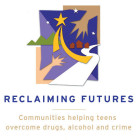
Arkansas Juvenile Justice Reform: A Blueprint for National Success?
|
In 1991, The Arkansas Democrat-Gazette published an article on the state’s juvenile justice system bearing the ominous headline “Stacked in centers, youths in trouble fall through the cracks.” The story also featured comments from a consultant, who said – two years prior – “too many youths who could better be served in community-based treatment were being inappropriately and unnecessarily held in state confinement.”
Over the next seven years, matters only worsened for the state’s juvenile justice system. In 1998, The Democrat-Gazette published a five-part series entitled “Juvenile Justice: The War Within” detailing the failings of the state’s juvenile incarceration sites. Three years after the series was published, two juveniles at the Alexander Youth Services Center – the state’s largest juvenile incarceration facility – committed suicide within a span of six months. A year later, the Civil Rights Division of the United States Department of Justice conducted an investigation of the facility, determining that the conditions at Alexander were so substandard that the constitutional rights of detained youth were being violated. By 2007, state officials decided it was time to completely overhaul Arkansas’ juvenile justice system, culminating with the enactment of state Senate Resolution 31, which authorized a comprehensive study with the intent of reducing “reliance on large juvenile correctional facilities” within the state.










